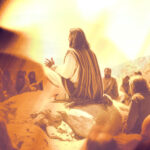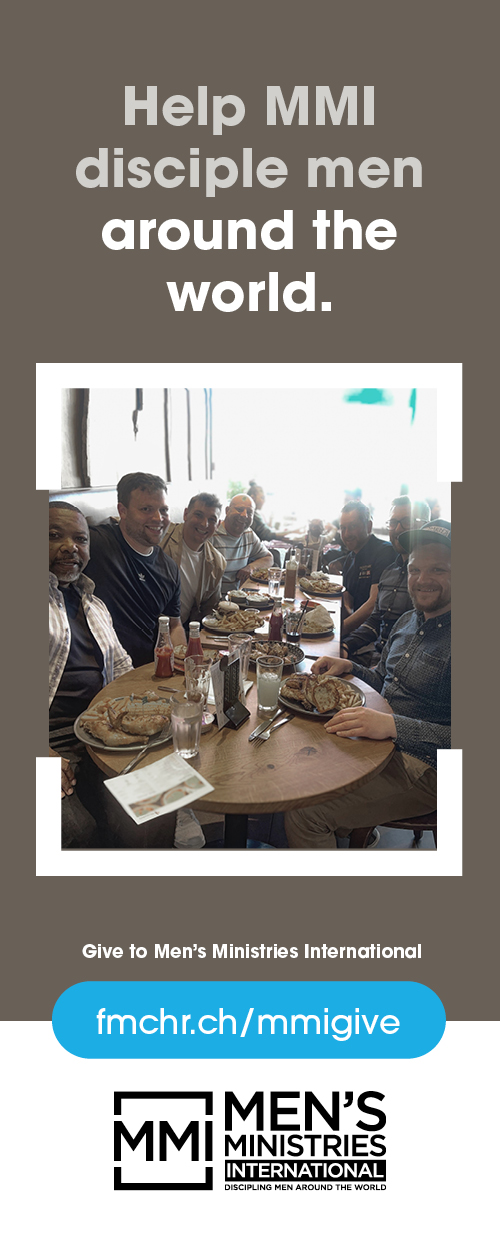
Jon Swanson
Jon Swanson, D.W.S., is the assistant superintendent of the Reach Conference. He has served churches in Washington and Colorado in a variety of roles including lead pastor, worship pastor, and communications pastor. He holds a doctorate and a master’s degree from the Robert E. Webber Institute for Worship Studies.
By Jon Swanson
“You must not worship the Lord your God in their way. But you are to seek the place the Lord your God will choose from among all your tribes to put his Name there for his dwelling. To that place you must go; there bring your burnt offerings and sacrifices, your tithes and special gifts, what you have vowed to give and your freewill offerings, and the firstborn of your herds and flocks. There, in the presence of the Lord your God, you and your families shall eat and shall rejoice in everything you have put your hand to, because the Lord your God has blessed you” (Deuteronomy 12:4-7).
“We have an observable passion for God’s presence when our congregation gathers” (Free Methodist Vision Frame).
The Worship Gathering
In Deuteronomy 12, we read about the early formation of the corporate worship experience. There is a definitive move away from solely worshiping God within the context of individual families. The new mandate is to gather at a central place for worship.
As we pursue a mission of “igniting a Spirit-fueled movement” in today’s church, let’s take a few moments to consider four basic building blocks of the early worship gathering:
Giving
First, worship, at the place God names, is predominately accomplished by bringing tithes, freewill offerings and whatever else the individual had promised to give to God (12:4-6). The word bring in the original Hebrew connoted a humble posture as people brought their gift(s). This particular posture suggests that God is as concerned with the heart behind the gift as much as the gift itself. Historically speaking, bowing down was an outward expression of an inward surrender.
_
“There is no way for created beings, like us, to truly offer anything of significance to the Creator.”
_m
The act of giving financially is simply a physical sign of wholehearted devotion to God. There is no way for created beings, like us, to truly offer anything of significance to the Creator. The Old Testament tithe in Deuteronomy 12 functioned simply as a symbol of recognition and adoration. Like Jesus who made a premeditative decision to give His life, we must make a decision in advance to reflect His generosity in and through the church as well as in and through our everyday lives.
Theologically, the offering has been considered “the highest point of the liturgy” because with it, people surrender what they love most — money and what money buys — as a gesture of meaningful worship. Thus, the offering actualizes a person’s spiritual aspiration through a simple act, which connects their spiritual commitment with their physical reality. Even though worship is primarily about saying “I love you back” to the one who first loved us, God blesses us by providing us with all our needs. He allows us to fully delight in 100 percent of His blessings — 90 percent within the context of our lives at home, and 10 percent with the worshipping community at the place of worship. Radical giving, which aligns with God’s generous nature, is the primary ideal associated with worship.
Celebration
The second essential component of the early worship gathering is celebration. The entire family is present. The entire community is welcomed — even pastors and foreigners. They have an epic barbecue and celebrate life because of their personal encounter with the generosity of God (12:7). The assembling of the people to worship God was a rocking party filled with singing, dancing and eating. It most certainly included families sitting together talking about theology.
_
“God’s generous character is to be replicated by His people in the context of the social community.”
_m
The party included everyone from the wealthiest to the poorest. The distinctive feature of a community deeply rooted in God’s generous care is demonstrative and jubilant celebrations when the community gathers. The only right and fitting response to God’s illustrious renown was faithful compliance to His character. God’s generous character is to be replicated by His people in the context of the social community.
Celebration became a standardized characteristic of worship gatherings especially at the time the offerings were formally given. They were happy to give not because they hated their wealth or because giving was easy, but because they saw firsthand how others were cared for and how the community as a whole was being built.
Changing the Culture
The third essential component to the early gathering of the worshipping community is that it changed the larger culture. God-honoring worship is completed through fulfilling our social responsibilities. If your worship ends when you leave the worship service, then you haven’t worshipped. If you see a brother or sister in need and say, “Hey, how are you? God bless you,” and go on your way without as much as offering a cup of soup, well, then you are not a worshipper period (James 2:14-17).
_
“Willingness to live on less for the benefit of others is one expression of God’s generosity.”
_m
Authentic worship honors God by celebrating His goodness and provision while at the same time providing generously for those living on limited budgets or living on the far edge of society. Willingness to live on less for the benefit of others is one expression of God’s generosity.
The Israelites brought their gifts through the doorway of self-denial and sacrifice. The selflessness associated with the care of the marginalized facilitates a secure and joyful environment. God asks us to give freely through the door of self-denial and sacrifice in order to participate with God in fostering a joyful and secure community.
A Gathering for Everyone
Finally, the gathering at the place of worship is for everyone. Regardless of one’s social standing, every member of the community is given the same right to be in God’s presence. Think about that for just a moment: Think about the people you don’t want your kids to hang out with — are they welcomed? What about foreigners to the faith? Are they welcomed, embraced, and included in the celebration? The worship celebration is for everyone including employees in the care of the family.
Furthermore, the Levitical priests are mentioned with the expectation that the community would care for them as well (Deuteronomy 12:12). The very presence of the Levites would have caused the Israelites to recall the Mosiac Law found in Exodus 20, including the Sabbath. The Sabbath literally means to rest. Rest only happens when we carve out time and simplify our lives. A day of rest and simplicity can help us create financial margin and, thus, be a catalyst to help those in need both inside and outside the community.
_
“Faithfully following God’s economic plan ultimately leads to a secure and joy-filled community.”
_m
While there is nothing wrong with individual/private worship experiences, the gathering of the worshipping community is predominantly a public affair that positively effects the larger community and economy. The assembling of the people to worship God encompassed jubilation and the inclusion of the marginalized. Faithfully following God’s economic plan ultimately leads to a secure and joy-filled community. Living on less for the benefit of others will minimize personal and corporate anxiety and worry.
+

Jon Swanson
Jon Swanson, D.W.S., is the assistant superintendent of the Reach Conference. He has served churches in Washington and Colorado in a variety of roles including lead pastor, worship pastor, and communications pastor. He holds a doctorate and a master’s degree from the Robert E. Webber Institute for Worship Studies.









